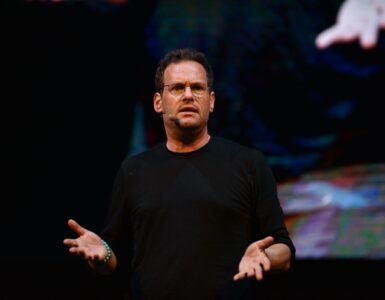Phystech Ventures, which currently has about $80 million under management, relocated its Moscow office to London last year. The firm was launched in 2013 and has its team spread across Russia, United States, United Arab Emirates as well as the U.K.
“We are focusing mostly on European deep tech currently and it’s the most convenient city,” said Daniel Shaposhnikov, partner at Phystech Ventures, in an interview with Icebreaker. “We have a large pipeline of startups from AI chips, quantum technologies, robotics, etc. And on the other hand, we have a lot of venture capital funds, private equity funds that are located there — it’s very convenient to syndicate.”
Phystech is not the only VC firm that sees the allure of London. Tech companies based there attracted a record $25.5 billion in investments last year, which is double the amount raised a year ago according to a Bloomberg report citing data from London & Partnersand data provider Dealroom.co.
The first fund Phystech Ventures raised was about $30 million, the second was about $50 million, and Shaposhnikov suggested the next one will be “several times larger.”
Like Shaposhnikov, many on the team have a deep tech background, which he identified as an advantage when talking to deep tech startups and understanding the problems they’re trying to solve as well as solutions. This advantage makes them a translator for other investors.
“If you understand the technology, you can describe it to other investors,” he noted. “We are a team who is reading scientific articles, who is going deep into technology and can separate, for example, quantum computers based on atoms from computers based on ions and photons.”
Phystech’s approach has been to identify a handful of “the strongest scientific groups or labs” in each segment they are interested in: quantum, biotech, deep AI.
“You (as an investor) should understand how each lab was created, because usually the founders of the startups are from one lab,” he said.
Understanding the science behind the products is also an advantage when it comes to early-stage risk.
“Some technologies we feel still have engineering problems, but the main scientific results are already achieved — that can make the risk profile okay for us,” Shaposhnikov noted.
While Phystech’s portfolio spans a range of industries from fuel cell technology to plant-based meat alternatives, there is a special paid to autonomous vehicles
Specializing in deeptech across a range of sectors, Phystech Ventures recently highlighted the air drones and air taxis in their recent report.
“Currently, the world has a very limited amount of autonomous high payload drones that are affordable and clients are already waiting for solutions, for example shipments between islands,” Shaposhnikov explains. “In five years, we will see huge changes in the market of high payload drone delivery.”
They were also the first institutional investor in HyPoint, a fuel cell technology company, which is partnering with ZeroAvia and other air taxi companies.
“What’s cool about HyPoint is that they are developing and producing already the most lightweight fuel cell in the world currently,” Shaposhnikov noted. “They have results of achieving 2,000 watts per kilogram of specific power and an energy density of up to 1,500-watt hours per kilogram: it’s really impressive.”
With their Russian roots, a small global team and its deep tech lens, it’s clear Phystech has been betting on ambitious teams and solutions — regardless of where they come from.






Add comment